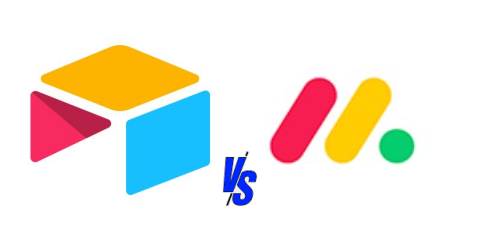
Basecamp is a collaboration hub and project management solution that helps connect teams through a multitude of communication and task management features. Built around the motto that the average software solution is too complex, Basecamp is a streamlined and easy-to-use project management solution that offers a variety of features.
Essential Overview
Pricing
Free trial (no free plan available)
Basecamp Standard – $15/user/month (guests are free)
Basecamp Pro – $299/mo for unlimited users*
*indicates annual payment plans
Best for
- Small businesses that are scaling and growing quickly
- Businesses with a variety of software needs that are looking to consolidate into one solution
- Agencies and client-focused businesses that want to share access with guest users
New Features
- Enhanced customization features for the homepage dashboard (2023)
- Kanban view added (2023)
- New Lineup view adds a Gantt-inspired view option (2023)
Methodology
Going hands-on is the best way to review software. I’ve personally spent over a year working with Basecamp directly as a daily user and tested its usability and features through numerous projects in real-world business cases.
In addition, I reviewed product specifications and customer testimonials, product documentation and demos, industry reviews, and competitor comparisons.
Read more: Top 10 Project Management Software
Key Basecamp Features
Collaboration Options
Compared to other top solutions, Basecamp shines when it comes to team collaboration. Basecamp is one of the rare solutions to offer built-in chat (called Pings) for one-on-one or group messaging, team member tagging, commenting, collaborative team boards, and more. Teammates can even react to messages with reactions called Boosts.
Small businesses and teams working with numerous freelancers or outside contractors would benefit from these features, as they can eliminate the need for other costly subscriptions, such as Slack. This can also help connect team members with clients faster when outside feedback is needed concerning approvals, new ideas, and more. Agile teams in particular can appreciate how Basecamp’s collaborative tools can streamline interactions for faster outcomes.
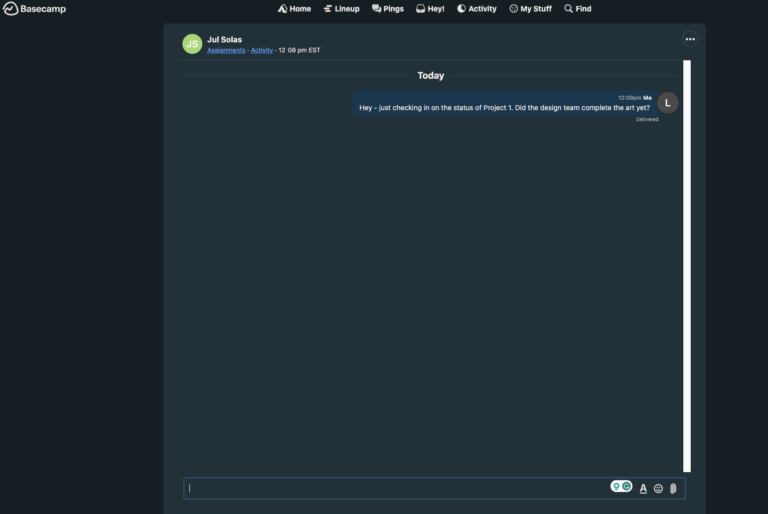
Guest Views
Basecamp offers four ways to view content within the application: As an admin user, as an in-organization user that’s been added, as a freelancer/3rd party contractor, or as a client. These views are much more specific than the view types offered by other solutions, which gives teams a greater degree of flexibility over how specific user types view and interact with project information.
One of the most convenient features within the view management process is the ability to personalize what information individual users can access at the same time that you invite them into Basecamp, simplifying data management without navigating into other parts of the app.

Task Management
Basecamps task management features to hone in on one central theme: user personalization. Each user’s tasks are laid out in a personalized checklist where users can check off tasks as they’re completed. With the ability to add task details and even tag users in the task description, it’s easy to locate all key task updates in one spot. I really enjoy the layout of Basecamp’s task management features, as many other solutions do not allow users a specific section dedicated to only their tasks across multiple projects.
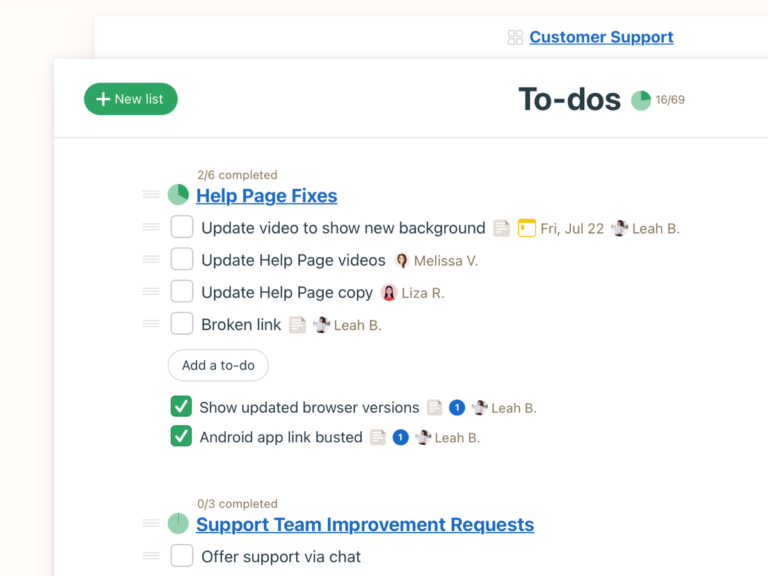
File Storage
In addition to project management, Basecamp includes a separate portion of the application that serves as a document and file storage vault. Even for teams that use other file-storing platforms, such as Google Drive, it can be convenient to have all the essential team files in one place for freelancers and clients. In my personal experience with Basecamp, the file storage feature can also function as a team Wiki which is a huge perk for teams that need to provide SOPs and onboarding information on hand for outside contractors.
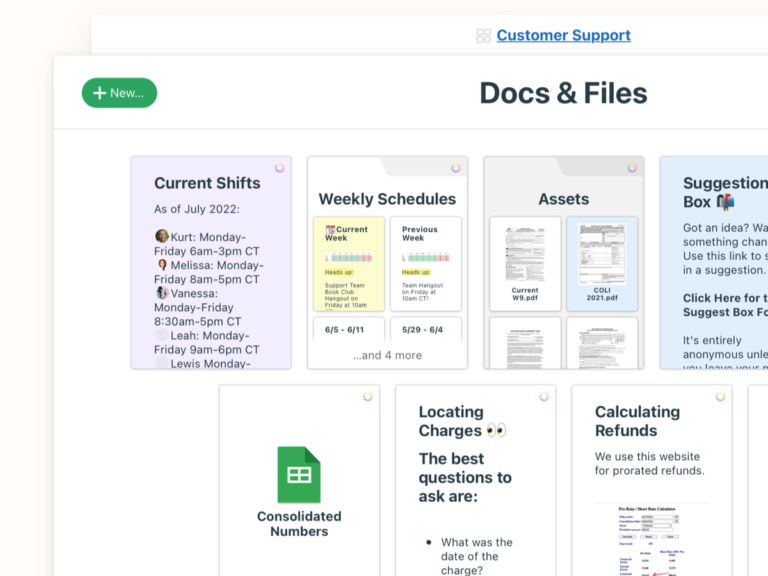
Unique Views
Basecamp’s task and project organization strategy is based on levels, allowing users to view a list of clients or projects at the organizational level and on a more granular level. Individual task checklists are available from the to-do list view as well as the dashboard view.
In addition, Basecamp offers a few other unique view types, such as Calendar, Gantt, Hill charts, Kanban, and more.
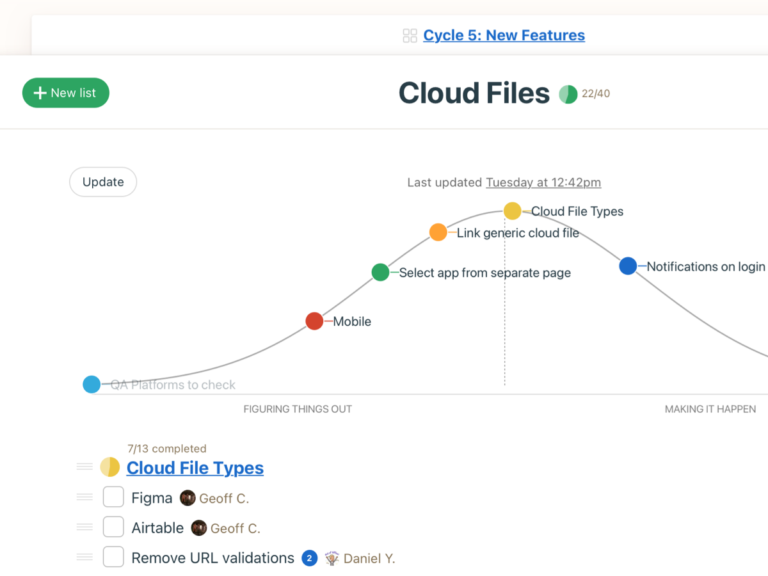
Read more: Best Basecamp Tutorials
Ease of Use and User Experience
Setup and Getting Started
While other vendors offer automated walkthrough options for new users, new members of Basecamp are greeted with a message straight from the CEO, Jason Fried, urging users to reach out to him directly with any needs or concerns. In my opinion, getting started with Basecamp is much easier than most other software solutions, so the personalized message is a nice touch in lieu of what would likely be a mostly unnecessary startup guide.

A welcome message from Jason Fried, CEO of 37signals, makers of Basecamp.
However, each individual portion of Basecamp does feature a setup guide to establish access permissions, project settings, and task assignments as you begin working through each section of Basecamp.
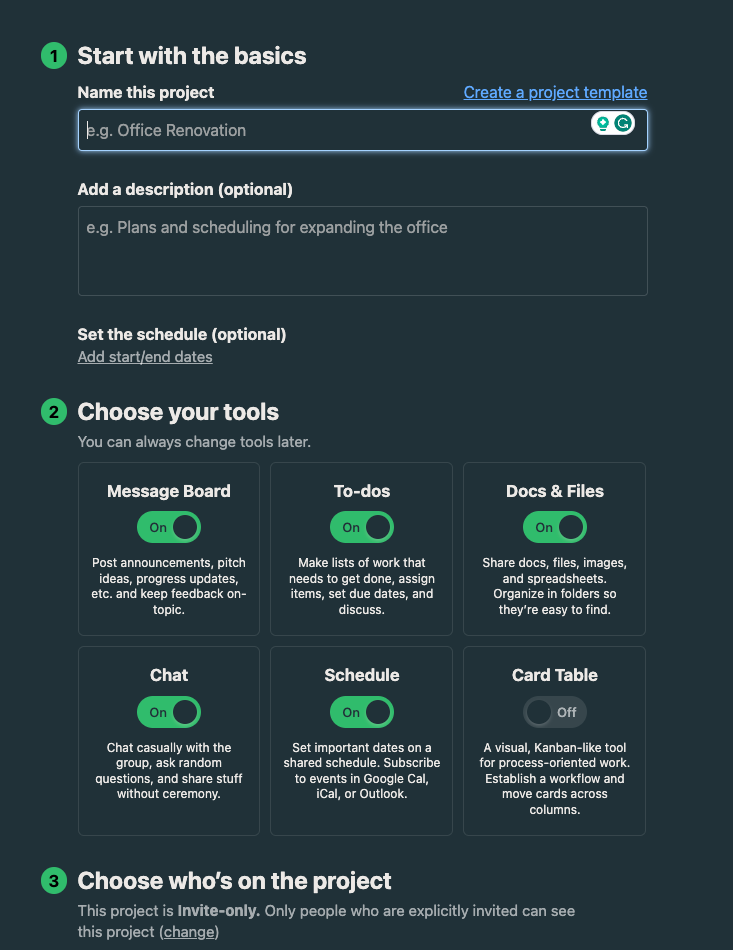
Overall User Experience
Overall, the UX of Basecamp is overwhelmingly positive. Within the first hour of navigating the platform, I felt confident in my ability to set up projects, navigate existing content, and access essential features. One of the most impressive things I noticed about Basecamp is that it has such an easy-to-use interface without sacrificing essential functionality, which is uncommon for project management software, in my opinion.
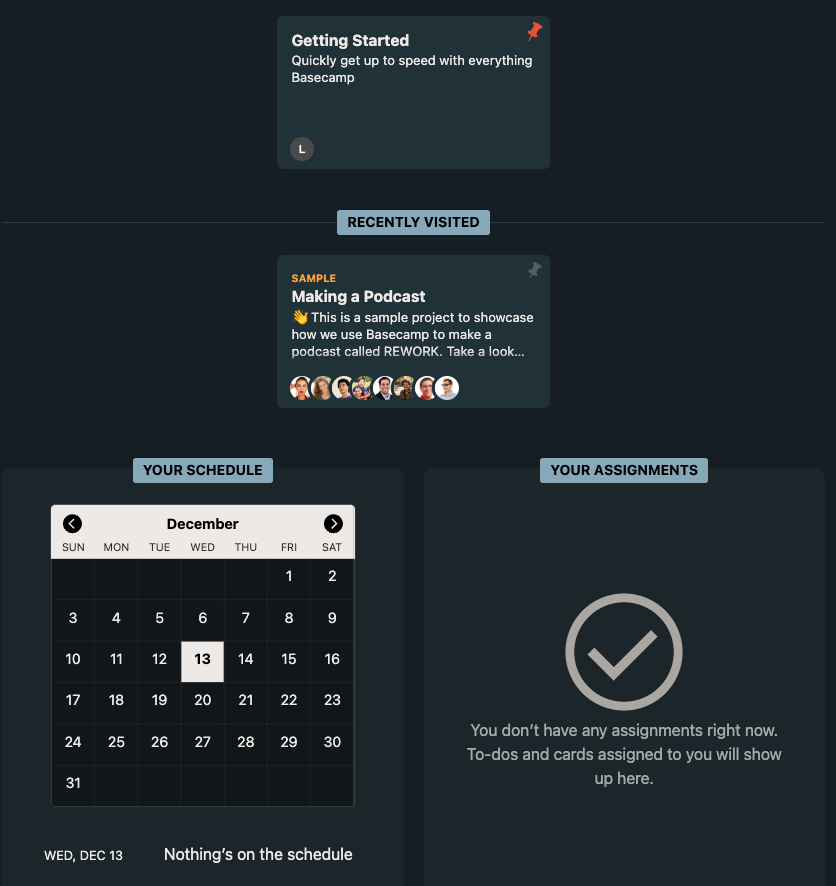
Security Features
Basecamp boasts numerous security features including:
- Multiple data backup points across numerous locations are backed up daily
- Data transmissions using HTTPS
- Regularly monitored and updated infrastructure
- Securely encrypted transactions
Customer Support Options
In Basecamp, there are three main ways to receive customer support: through tutorials to troubleshoot, help guides, or a direct request form to the Basecamp team. In addition, the Basecamp team promises that they will get back to you within an hour.

Basecamp Pros and Cons
Pros
Cons
Read more: Basecamp Pros and Cons
Top Basecamp Alternative: ClickUp
If you aren’t impressed with Basecamp and are looking for a collaboration-focused platform with a free plan and impressive reporting features, try ClickUp.
Read more: How To Choose Project Management Software





